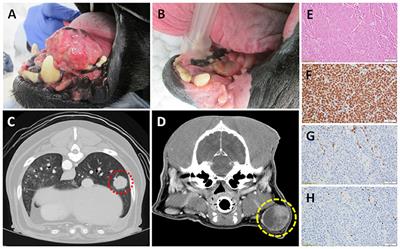EDITORIAL
Published on 27 Aug 2019
Editorial: “Humanized” Large Animal Cancer Models: Accelerating Time and Effectiveness of Clinical Trials
doi 10.3389/fonc.2019.00793
- 2,171 views
- 2 citations
12k
Total downloads
54k
Total views and downloads
EDITORIAL
Published on 27 Aug 2019
MINI REVIEW
Published on 21 Jun 2019

ORIGINAL RESEARCH
Published on 19 Jun 2019

REVIEW
Published on 04 Jun 2019

REVIEW
Published on 26 Apr 2019

MINI REVIEW
Published on 12 Mar 2019

MINI REVIEW
Published on 25 Feb 2019

ORIGINAL RESEARCH
Published on 25 Feb 2019

ORIGINAL RESEARCH
Published on 22 Jan 2019

MINI REVIEW
Published on 15 Jan 2019

HYPOTHESIS AND THEORY
Published on 30 Nov 2018
